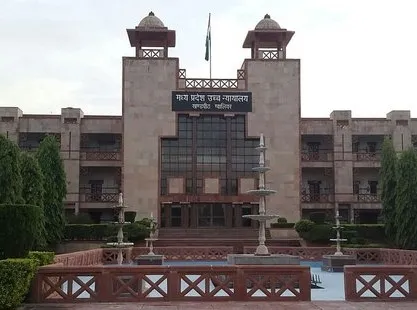Madhya Pradesh High Court Nullifies 2015 Notification on Forest Species Transit

Synopsis
Key Takeaways
- Madhya Pradesh High Court annuls 2015 notification.
- References to Pushpa highlight illegal forest trade.
- Importance of Article 21 for environmental protection.
- Restoration of Transit Pass Rules 2000.
- Future court review scheduled for March 10, 2025.
Bhopal, March 6 (NationPress) The Madhya Pradesh High Court has declared a 2015 government notification null and void, which allowed the cutting down of various tree species and their transportation without necessary permits.
In a light-hearted remark, the court referenced the recent film 'Pushpa', which depicted a network of traders and smugglers involved in the illicit transportation, trade, and sale of red sandalwood in the lush forests of Seshachalam, Andhra Pradesh. This representation underscored how such networks could establish influence, impacting numerous tiers of governance, from law enforcement to forest officials, policymakers, and legislators. The film vividly illustrated how illegal activities surrounding forest resources can infiltrate deep into forests, collaborating with state machinery to exploit the natural wealth of these areas.
A bench comprising Chief Justice Suresh Kumar Kait, Justice Sushrut Arvind Dharmadhikari, and Justice Vivek Jain noted that the right to life, as guaranteed by Article 21 of the Constitution of India, is intrinsically linked to the 'protection and conservation of the environment, forests, and natural resources.
The court pointed out two essential constraints on the state’s authority to grant exemptions under Section 41(3) of the Forest Act: the 'necessity test' and the 'causal connection test'. This provision empowers that any rule established under this section should not apply to any designated class of timber or forest produce or to any specific local area.
The state government, via its September 2015 notification, initially exempted 53 species of forest produce from the strict regulatory provisions under the Transit Rules. This notification covered 53 species of forest produce, including a significant number believed to be abundant in the dense forests of Madhya Pradesh across various districts.
Additionally, another notification in April 2017 amended this by excluding an additional 9-10 species from the strictures of the Transit Rules.
The notification was contested in the Indore bench of the High Court and the Principal Seat in Jabalpur through two writ petitions.
Upon revoking the notification and its amendments, the court reinstated the Transit Pass Rules 2000 immediately.
The court stated that any species found to be significantly present in the forest regions of Madhya Pradesh cannot receive a blanket exemption from the regulatory framework or the Transit Pass Rules.
The contentious notification dated September 24, 2015, along with its subsequent amendments, which exempted 62-63 species of plants and forest produce, was issued without thorough background research, surveys, or empirical studies by the state to justify such exemptions, particularly on an indefinite basis, the court noted.
The cancellation of the 2015 notification might lead to the revival of earlier notifications from 2005 and 2007, which exempted approximately 13-14 species statewide in Madhya Pradesh.
The matter is scheduled to be reviewed by the court on March 10, 2025, for necessary directions and orders once the state submits a compliance status report.









